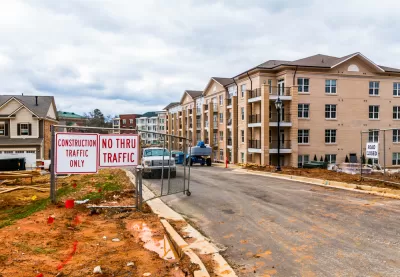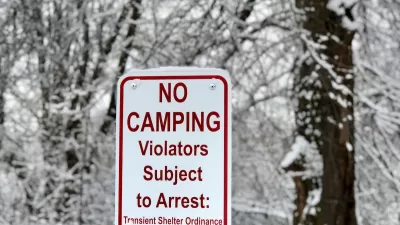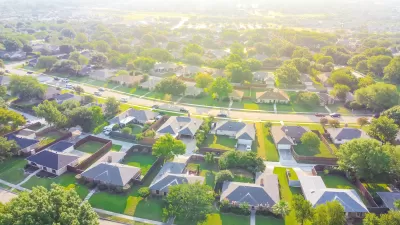Despite the powerful impact of local land use and zoning policies on housing costs and supply, many U.S. mayors believe they have little control over homelessness in their cities.

“According to a report released in December by the U.S. Department of Housing and Urban Development (HUD), nearly 600,000 Americans were homeless at this time last year,” writes Carl Smith for Governing. But according to the 2021 Menino Survey of Mayors, “only 1 in 5 mayors felt they had more than ‘moderate’ control over homelessness in their cities,” and almost seven out of 10 did not see zoning as a significant barrier to reducing homelessness.
As Smith points out, “Improving social services won’t be enough if housing is in short supply, or too expensive,” but only 30 percent of homelessness plans from the nation’s 100 largest cities mention zoning and land use. Yet “It’s important to recognize that one of the basic reasons people don’t have housing is because the housing is not being built in the first place, says architect and attorney Sara Bronin.”
Bronin points out that “Although restrictions on housing density have a well-recognized impact on housing development, code requirements regarding such things as lot size, parking spaces, building height or public hearings can also present barriers.”
Resource-strapped mayors can now look to federal “Yes In My Backyard” grants from the Department of Housing and Urban Development (HUD) to advance zoning reform. The grant program was allocated $85 million in the 2022 omnibus spending bill.
FULL STORY: Few Mayors Connect the Dots Between Zoning and Homelessness

Maui's Vacation Rental Debate Turns Ugly
Verbal attacks, misinformation campaigns and fistfights plague a high-stakes debate to convert thousands of vacation rentals into long-term housing.

Planetizen Federal Action Tracker
A weekly monitor of how Trump’s orders and actions are impacting planners and planning in America.

In Urban Planning, AI Prompting Could be the New Design Thinking
Creativity has long been key to great urban design. What if we see AI as our new creative partner?

King County Supportive Housing Program Offers Hope for Unhoused Residents
The county is taking a ‘Housing First’ approach that prioritizes getting people into housing, then offering wraparound supportive services.

Researchers Use AI to Get Clearer Picture of US Housing
Analysts are using artificial intelligence to supercharge their research by allowing them to comb through data faster. Though these AI tools can be error prone, they save time and housing researchers are optimistic about the future.

Making Shared Micromobility More Inclusive
Cities and shared mobility system operators can do more to include people with disabilities in planning and operations, per a new report.
Urban Design for Planners 1: Software Tools
This six-course series explores essential urban design concepts using open source software and equips planners with the tools they need to participate fully in the urban design process.
Planning for Universal Design
Learn the tools for implementing Universal Design in planning regulations.
planning NEXT
Appalachian Highlands Housing Partners
Mpact (founded as Rail~Volution)
City of Camden Redevelopment Agency
City of Astoria
City of Portland
City of Laramie





























